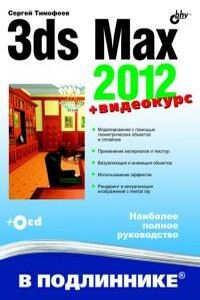The Official Radare2 Book | страница 75
| c1 [addr] Compare 8 bits from current offset
| c2 [value] Compare a word from a math expression
| c4 [value] Compare a doubleword from a math expression
| c8 [value] Compare a quadword from a math expression
| cat [file] Show contents of file (see pwd, ls)
| cc [at] Compares in two hexdump columns of block size
| ccc [at] Same as above, but only showing different lines
| ccd [at] Compares in two disasm columns of block size
| ccdd [at] Compares decompiler output (e cmd.pdc=pdg|pdd)
| cf [file] Compare contents of file at current seek
| cg[?] [o] [file] Graphdiff current file and [file]
| cu[?] [addr] @at Compare memory hexdumps of $$ and dst in unified diff
| cud [addr] @at Unified diff disasm from $$ and given address
| cv[1248] [hexpairs] @at Compare 1,2,4,8-byte (silent return in $?)
| cV[1248] [addr] @at Compare 1,2,4,8-byte address contents (silent, return in $?)
| cw[?] [us?] [...] Compare memory watchers
| cx [hexpair] Compare hexpair string (use '.' as nibble wildcard)
| cx* [hexpair] Compare hexpair string (output r2 commands)
| cX [addr] Like 'cc' but using hexdiff output
| cd [dir] chdir
| cl|cls|clear Clear screen, (clear0 to goto 0, 0 only)
To compare memory contents at current seek position against a given string of values, use cx:
[0x08048000]> p8 4
7f 45 4c 46
[0x08048000]> cx 7f 45 90 46
Compare 3/4 equal bytes
0x00000002 (byte=03) 90 ' ' -> 4c 'L'
[0x08048000]>
Another subcommand of the c command is cc which stands for "compare code". To compare a byte sequence with a sequence in memory:
[0x4A13B8C0]> cc 0x39e8e089 @ 0x4A13B8C0
To compare contents of two functions specified by their names:
[0x08049A80]> cc sym.main2 @ sym.main
c8 compares a quadword from the current seek (in the example below, 0x00000000) against a math expression:
[0x00000000]> c8 4
Compare 1/8 equal bytes (0%)
0x00000000 (byte=01) 7f ' ' -> 04 ' '
0x00000001 (byte=02) 45 'E' -> 00 ' '
0x00000002 (byte=03) 4c 'L' -> 00 ' '
The number parameter can, of course, be math expressions which use flag names and anything allowed in an expression:
[0x00000000]> cx 7f469046
Compare 2/4 equal bytes
0x00000001 (byte=02) 45 'E' -> 46 'F'
0x00000002 (byte=03) 4c 'L' -> 90 ' '


